Alumni Achievers: Conquering Ironman 2025 – Anuj Singhal, PGP 2006
From navigating the high-paced world of global investment banking to conquering one of the world’s toughest endurance races, Anuj Singhal’s journey is one of grit, discipline, and quiet determination. An alumnus of IIT Madras and IIM Bangalore, and now a Partner at EY, Anuj has built a career defined by focus and resilience. But beyond the boardroom, he has also embraced the world of endurance sports, completing the Ironman 140.6 in Estonia — a feat that demands extraordinary physical and mental strength. In this conversation, Anuj shares how his professional path, personal philosophy, and sporting pursuits are deeply intertwined, offering valuable lessons on growth, discipline, and living fully in the present.
We’d love to hear about your background, your journey so far, and what drives you personally and professionally.

I grew up with a typical middle-class Indian upbringing with a strong emphasis on education. After earning my B. Tech from IIT Madras and an MBA from IIM Bangalore, I began my career in investment banking at Bank of America in London. Over the next 13 years, I held leadership roles across global investment banks across risk management domain. In 2019, we returned to India and joined Swiss Re in Bangalore as Head of Risk Management. Currently I am a Partner in EY. I have a lovely wife Rashmi whom I met in IIM Bangalore, and we have 2 super energetic boys Vivaan and Arjun who are both football fanatics.
My personal and professional philosophy is simple: I don’t chase distant horizons. I focus on being fully present, striving each day to be a better version of myself than the day before. I believe that every day consistent growth is the foundation of success.
Having completed the Ironman 140.6 in Estonia recently, what can you tell us about the event itself, your preparation, performance, and key takeaways?
The Ironman Triathlon is one of the most gruelling endurance races in the world, designed to test the limits of physical and mental stamina.
An Ironman race consists of three continuous endurance events:
- Swim – 3.86 km (2.4 miles)
- Bike – 180.25 km (112 miles)
- Run – 42.2 km (26.2 miles, a full marathon)
All three segments must be completed sequentially and without a break, typically within a 17-hour time limit.
Preparing for an Ironman usually takes 6–12 months of structured training with an average of 15-17 hours of weekly training, including:
- Long-distance swimming, cycling, and running
- Nutrition planning
- Recovery strategies
- Mental conditioning
Ironman was never going to be easy — but nothing prepared me for the sheer brutality of race day.
The morning began with a 3-hour delay due to freezing winds. When the swim finally started, the water was so cold it felt like my lungs were locking up. Breathing was a struggle, and my mind kept telling me to quit. But I fought back — not with bravado, but with simplicity: just one stroke at a time. That mindset carried me through the icy waves.
The bike leg was strong, even as wind and rain lashed against me. I found rhythm in the storm, pushing forward with focus and grit.
But the run — that was the real test. It was nearly midnight, the temperature had dropped drastically, and my legs and hands were completely frozen. Every step was a battle. Not against the distance, but against my own limits.
I realized how much of endurance racing is about embracing the unknown. Plans shift, conditions change, and you must recalibrate — not just your strategy, but your mindset. It reminded me that in both sport and life, the real growth happens when you stay calm in chaos and keep moving forward. I didn’t race to beat others. I raced to become a better version of myself — one that’s more patient, more focused, and more resilient.
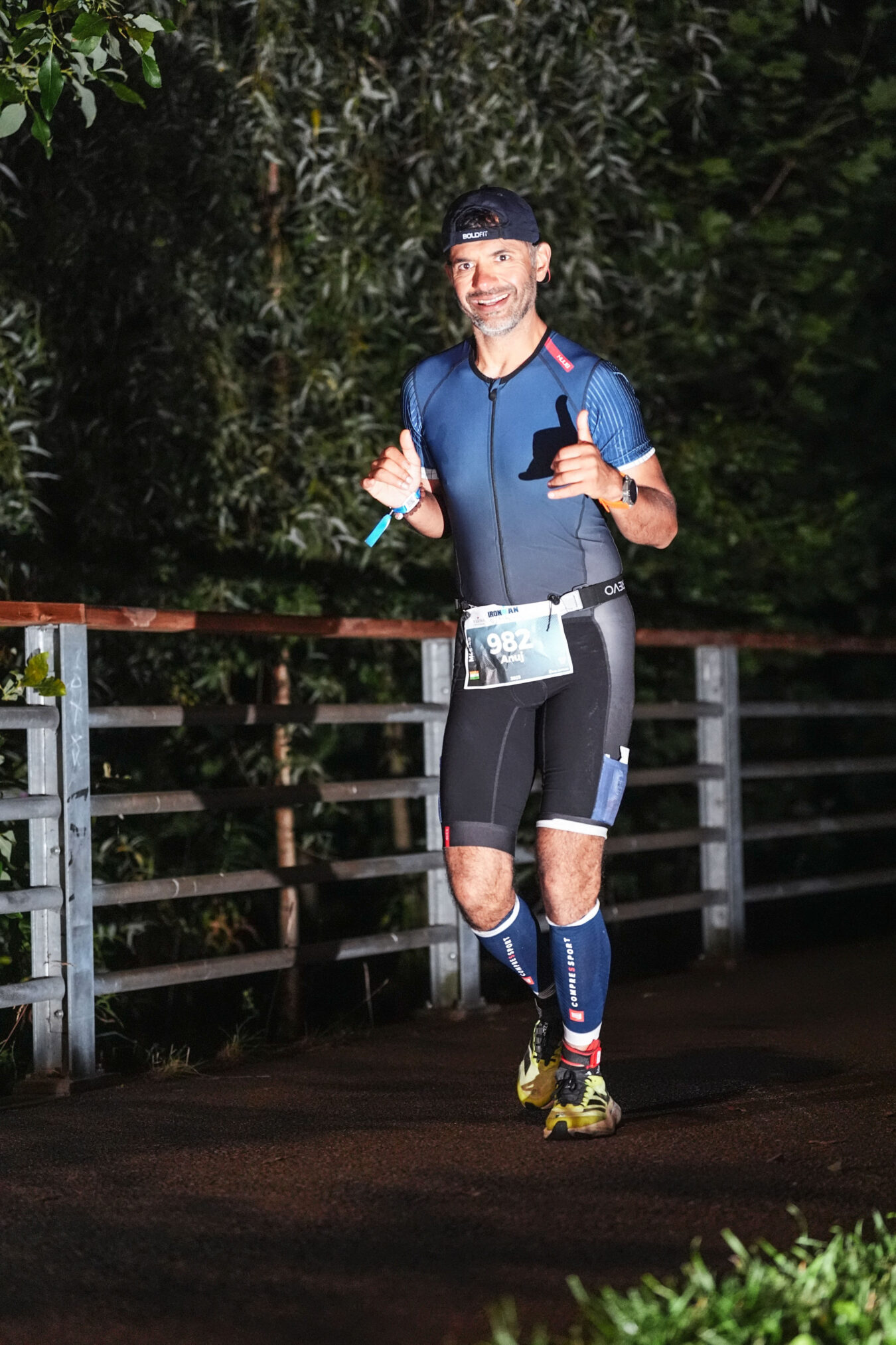
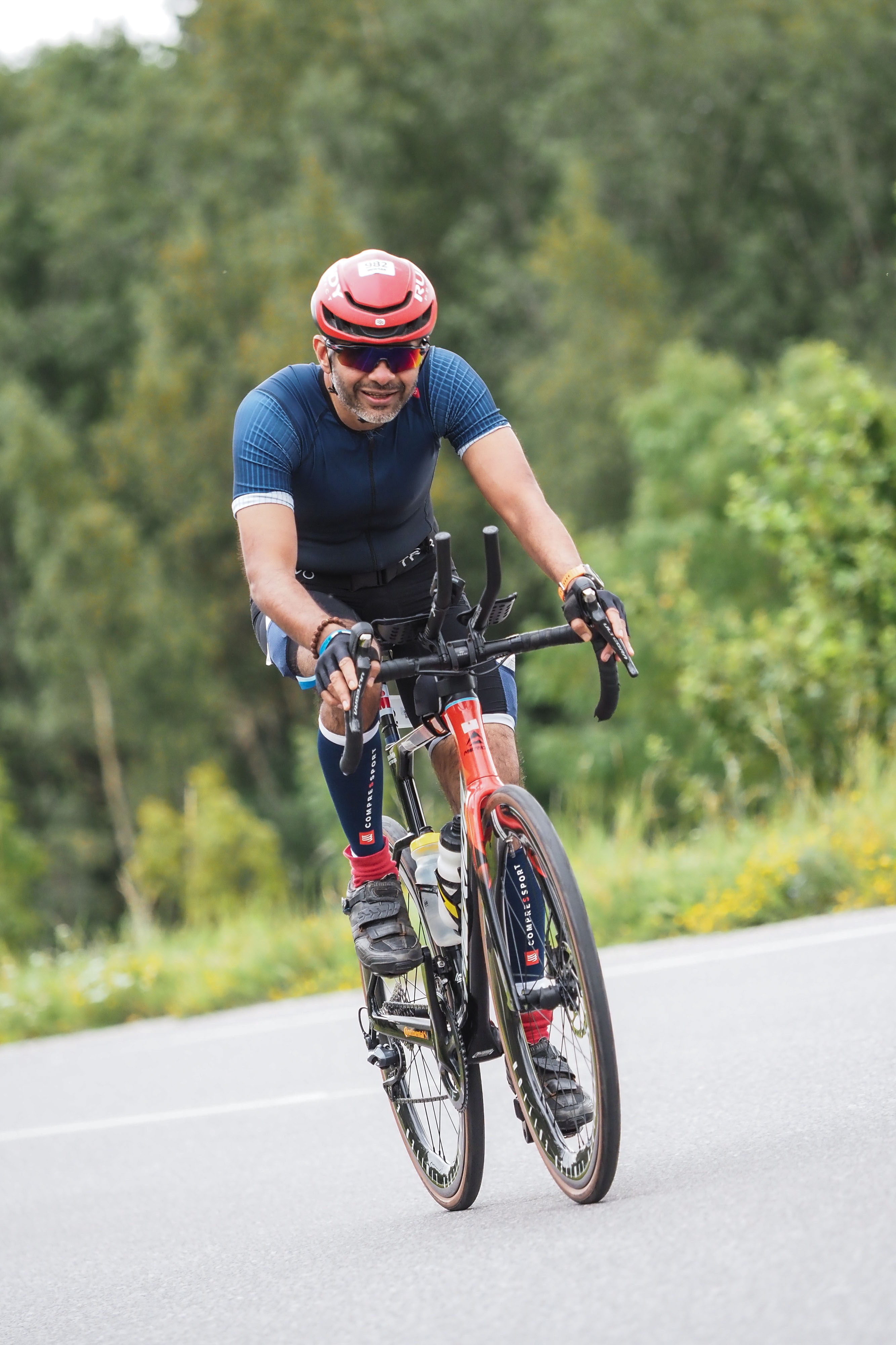
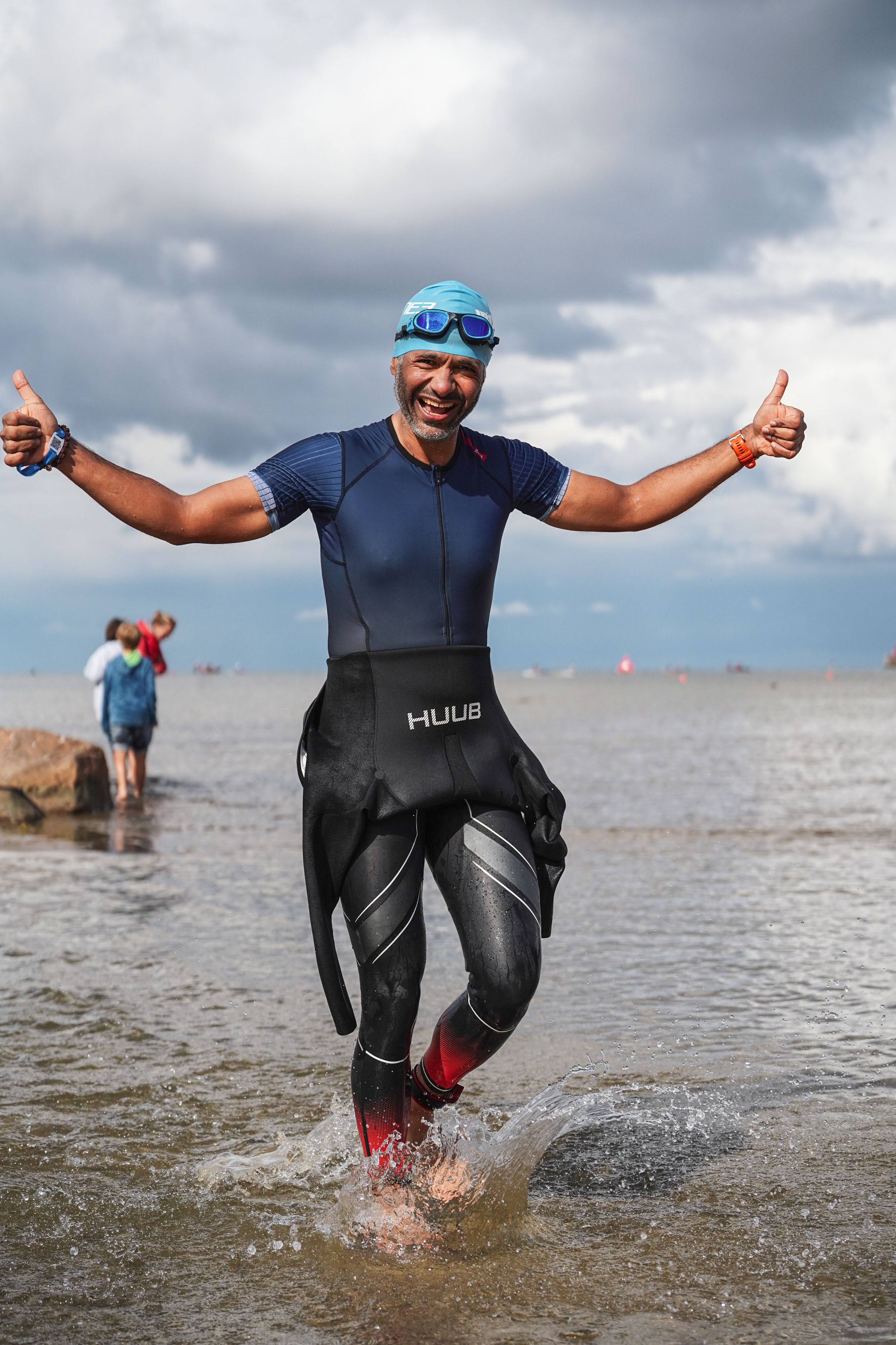
What inspired you to take up triathlons and endurance sports, and how did you get started?
From ICU to Ironman: My Journey into Triathlon
When I graduated from IIM Bangalore, I weighed 90 kg and was in poor physical shape. Running even 1 km felt like a mountain. I started going to the gym with a simple goal — to lose weight. Slowly, running became part of my life. It wasn’t easy, but I stayed consistent.
Then came the second wave of COVID. I was severely impacted and spent two weeks in the ICU. Recovery was slow and painful. Even basic physical activity felt impossible. I realized I needed a new challenge, something that would push both my mind and body beyond their limits. So, I signed up for Ironman 70.3 Goa in October 2023.
Since then, triathlon has become more than a sport — it’s a mindset. It’s about showing up, even when it’s hard. It’s about finding strength in vulnerability. And most importantly, it’s about discovering what’s possible when you refuse to give up.
Could you walk us through your training regimen and the lifestyle changes—diet, sleep, or routines—that serious endurance sports require?
Discipline Over Motivation
Training for Ironman demanded a lifestyle rooted in discipline. I averaged 15–17 hours of training per week, with weekday mornings dedicated to 2-hour sessions combining running, swimming, cycling, and strength work. Weekends were reserved for long runs and bike rides — the backbone of endurance preparation.
One of the most underrated aspects of endurance training is sleep. It’s not just recovery — it’s performance. I made it a priority to get 8 hours of sleep every night, going to bed by 9:00 pm and waking up at 5:00 am. That consistency helped me stay mentally sharp and physically resilient.
Nutrition was equally critical. There’s a saying: you can’t outrun a bad diet — and it’s true. I focused on eating home-cooked meals, paying close attention to portion sizes and maintaining a balanced intake of macros. Fuelling the body right was as important as the training itself.
Ironman isn’t just a race. It’s a lifestyle — one that teaches you the power of routine, the value of recovery, and the strength that comes from showing up every single day.
How has participating in endurance sports influenced your mindset, resilience, and approach to challenges in daily life?
1. You Can Only Run the Mile You Are In
Endurance events like Ironman are filled with variables outside your control — weather, fatigue, unexpected setbacks. It’s easy to get overwhelmed by what’s already happened or what might come next. The real lesson is to focus on the present: the mile you are cycling or running right now. By giving your best in each moment, you free yourself from unnecessary pressure and unlock your true potential. Ironman taught me to stay present, take it one step at a time, and trust the process.
2. The Good, the Bad, and the Ugly
No two days are ever the same in endurance training. Some days, running feels effortless — like you were born for it. Other days are just average. And then there are days when your legs refuse to move, and you want to quit at every kilometre. But it’s those tough days that truly build your character. They teach you resilience and humility.
The real secret? Consistency eats intensity for breakfast every day. It’s not about how hard you can go once, but how often you show up, especially when it’s hard.
Balancing a demanding career with intensive training must be challenging. How do you manage your time and maintain a healthy lifestyle?
Ability to say ‘No’
As Eluid Kipchoge (the first man to break 2 hrs marathon barrier) says “Only the disciplined ones are truly free in life. The undisciplined ones are a prisoner of their mood”
Self-discipline is doing what is right instead of doing what you feel like doing. We should focus on our values and priorities and making the personal and professional choices that will keep us on the path to our goals should be something we should practice daily. Establishing boundaries allows us to stay focused and on the path toward our goals.
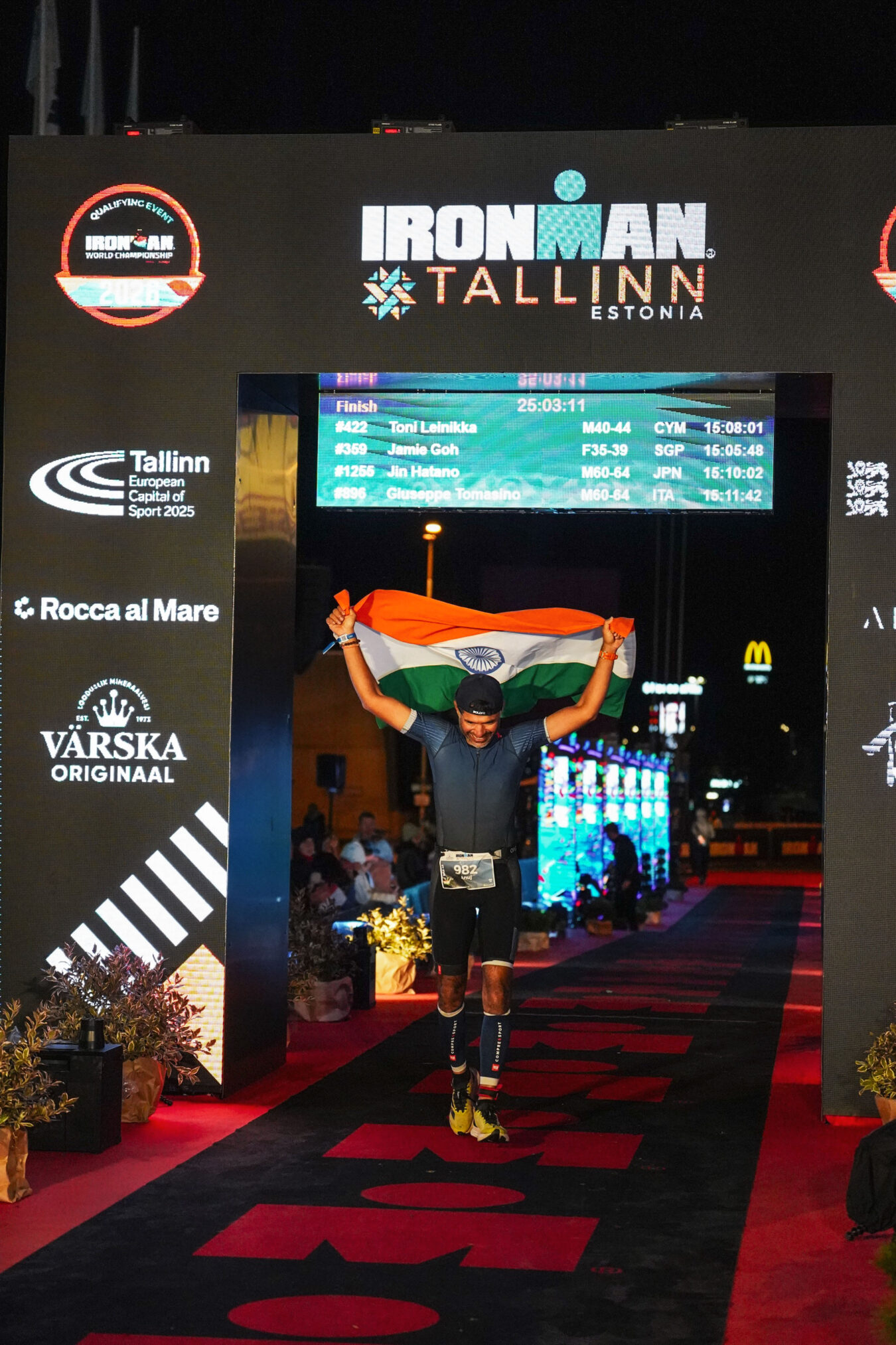
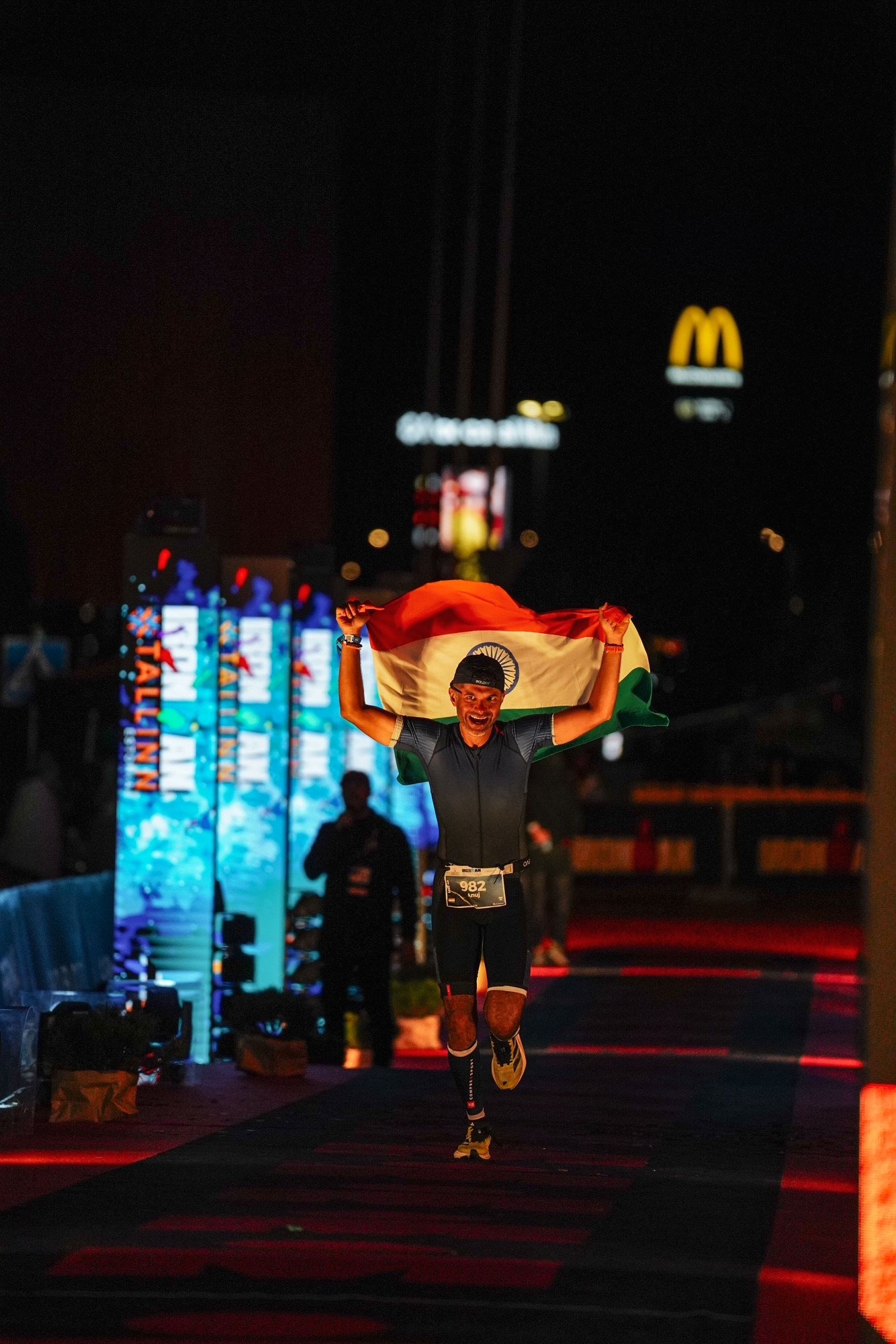
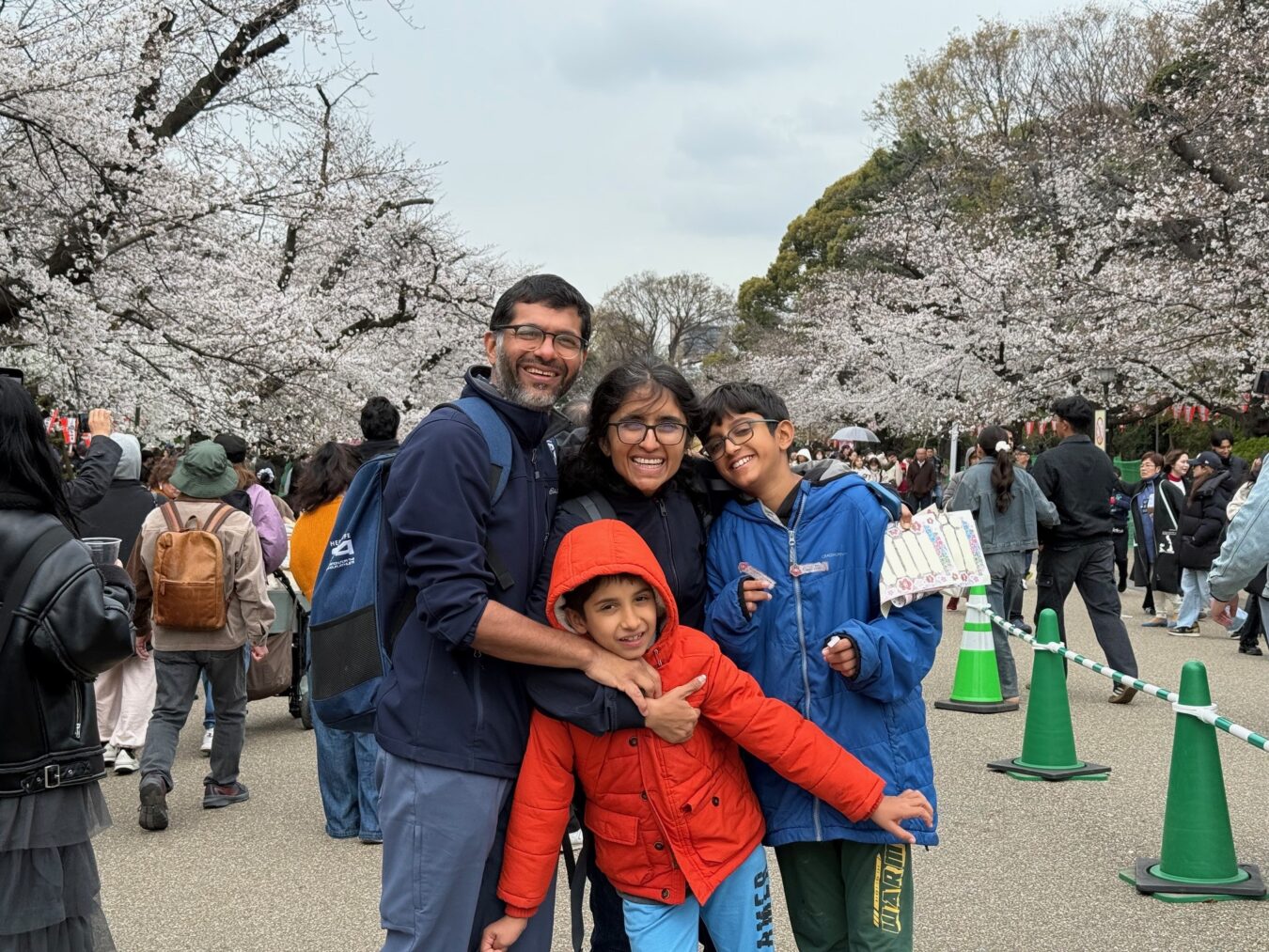
What is the next challenge or endurance event you are preparing for, and what personal or athletic challenge are you planning to overcome in it?
Ironman may look like an individual pursuit, but it truly demands a supportive family. Behind every early morning, long ride, and late-night recovery is a family that adjusts, encourages, and sacrifices alongside you.
Right now, I haven’t set my next goal — I want to spend more time with my kids and wife. But fitness is no longer just a goal; it’s become a lifestyle I plan to continue, with my family at the centre of it.
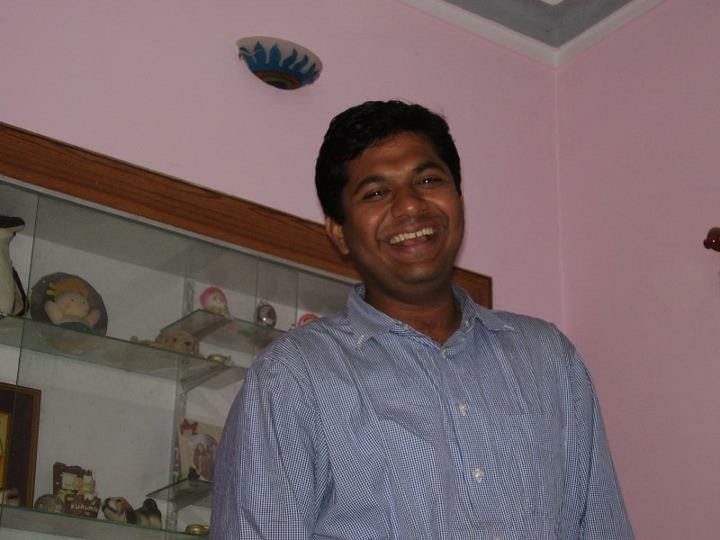
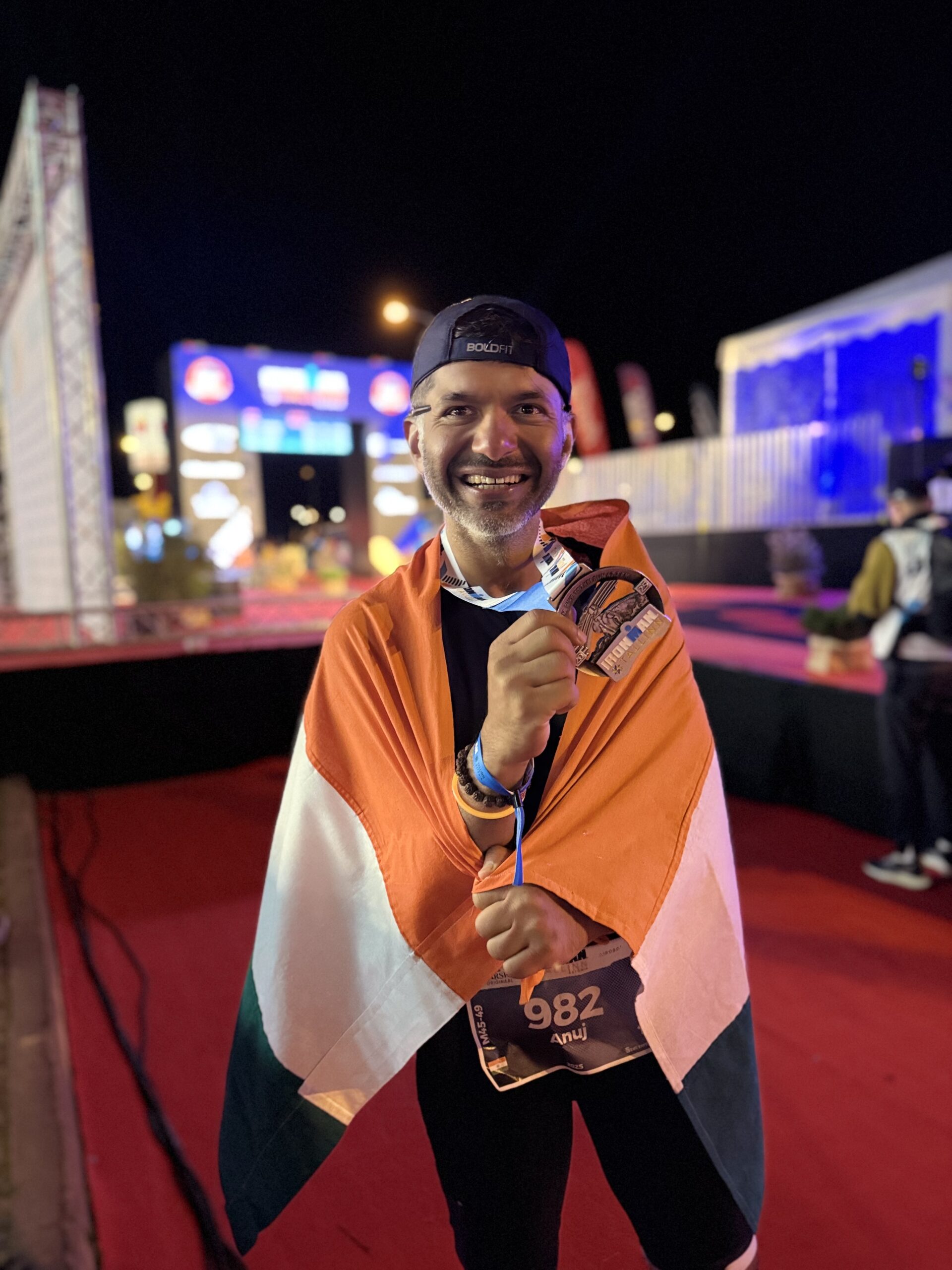
In your experience, what small changes or habits can people adopt that create a meaningful impact on their personal or professional lives?
Start Small, But Start
The magic you are looking for is in the work you are avoiding. The hardest part of every journey is the first step. Don’t wait for the “perfect time.” Begin with what you can manage — even 20–30 minutes a day adds up over time.
The key is not to zoom out and think about the whole race, rather zoom in and focus on the next mile. Big goals and long days lose their power to overwhelm when you zoom in and celebrate every step.
What advice would you offer to students and fellow alumni who wish to pursue their passions while managing a busy professional life?
The only advice I will give to people is to plan and protect your time. Treat your passion like any important meeting. Block time in your calendar and honour it.
Anuj reminds us that success is built on consistency and mindful choices. His story encourages us to start small, stay disciplined, and keep showing up — one step, one mile, one day at a time.


